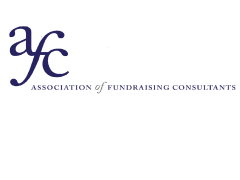Don’t panic! Be prepared for a fundraising crisis
Even with the most comprehensive fundraising strategy, some fundraising campaigns may find themselves in a crisis. Some of the reasons may be impossible to predict and outside of a charity’s control. Others may be self-inflicted or as a result of internal limitations. For example, difficulties may be caused by a sudden gap in the project’s leadership team and a loss of momentum, a lack of clear leadership or an inadequate stakeholder engagement programme. Unless dealt with effectively, a fundraising campaign can reach crisis point very quickly.
Planning for the unexpected
Even before your fundraising campaign gets underway, you can plan ahead to help mitigate against potential crises in your fundraising campaign. A fundraising consultant can help by conducting a SWOT analysis as part of a resources study (click here to read our recent article on the benefits of resources study) to identify your charity’s ability and capacity to fundraise - and the potential challenges that lie ahead. SWOT is the acronym for strengths, weaknesses (factors over which you may have some measure of control), opportunities and threats (external factors over which you essentially have very little or no control).
You will need to develop and maintain a clear fundraising strategy to plan your campaign’s journey, the resources you will need and the work that needs to be done to achieve the fundraising goals. As part of this, you will also build and develop your case for support to demonstrate your objectives and the positive impact the results will have on your beneficiaries.
Leadership, commitment and a strong team
Within your fundraising team, you need to ensure that you have a wide range of relevant skills to help execute the fundraising strategy and make sure it remains on course. As your fundraising team grows, it is important to continually assess the skills you have and plan ahead for any skills gap you may need to fill.
Most successful fundraising campaigns are underpinned by a well-structured, skilled and committed leadership team. However, consider what would happen to your fundraising project if there was a gap in leadership? Do you need to have a succession plan in place (particularly if the fundraising campaign is going to run over a long period of time)? We worked on an ambitious project to raise funds for new accommodation and church refurbishment for the Oxford Oratory of St Philip Neri. The campaign experienced two changes in leadership in relatively quick succession which had the potential to disrupt fundraising efforts. However, as a result of a clear fundraising strategy and a seamless transition in leadership on both occasions, the campaign remained on track and went on to raise approx. £3m. (To find out more about our work with the Oxford Oratory, please click here)
Communication is king
An important component of any fundraising team is effective communication. There is a higher risk of internal issues if you do not have adequate procedures in place to communicate regularly with management, staff and volunteers. Should you ever have a fundraising crisis, an established communication function will make it much easier and quicker to inform your team of any issues, provide reassurances and engage with individuals for further support.
With an effective stakeholder engagement programme, you will not only be able to find out what is happening externally that may affect your project (and thus have the opportunity to plan accordingly), but you will also have established channels of communications to reach members of these groups should any crisis arise.
The media may be an important stakeholder group for your fundraising campaign. Positive press coverage can help promote awareness of a fundraising campaign and encourage more donations. However, the press will also need to be managed to prevent any negative publicity should your fundraising campaign encounter difficulties. It is well worth looking to recruit someone who has PR experience into your team. They will be able to write, advise and communicate effectively with the media and use pre-existing relationships with journalists to your charity’s advantage.
Extra help to ensure a campaign stays on course
However, despite the best planning, leadership and communication, unfortunately there are some crises that are impossible to predict and will be outside of the fundraising team’s control. For example, an economic downturn, an external contractor going bankrupt before a job is completed, or the resignation or death of a campaign chair. A fundraising consultant can step in to work with the leadership team to resolve or overcome problems and help ensure that the fundraising campaign maintains momentum and that the project continues despite its challenges.
Have you thought about the different crisis situations your fundraising campaign might find itself in? Do you have a plan for dealing with a fundraising crisis? Why not get in touch to see how we may be able to help you plan for the unpredictable. Please click here to contact us.
23.05.2017
For more information, call us on 01256 698 090 or send an email.



